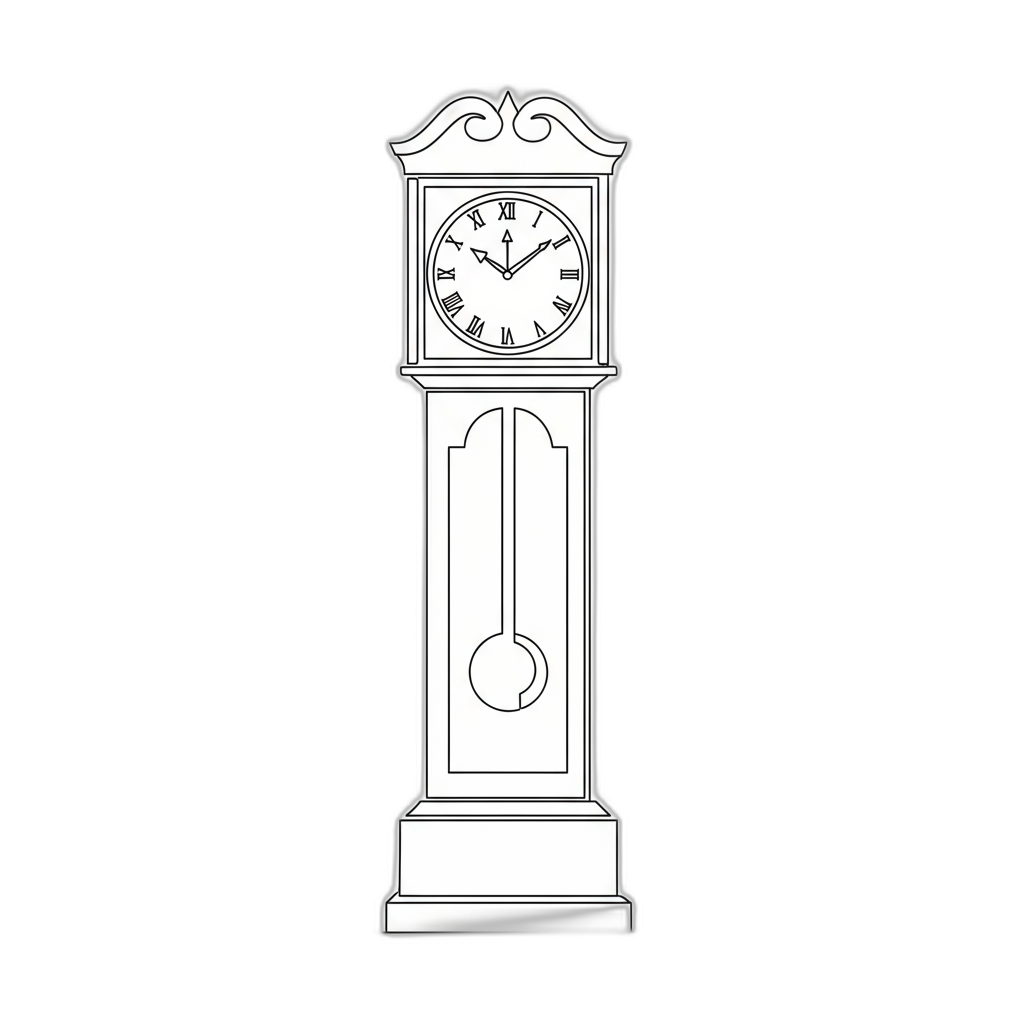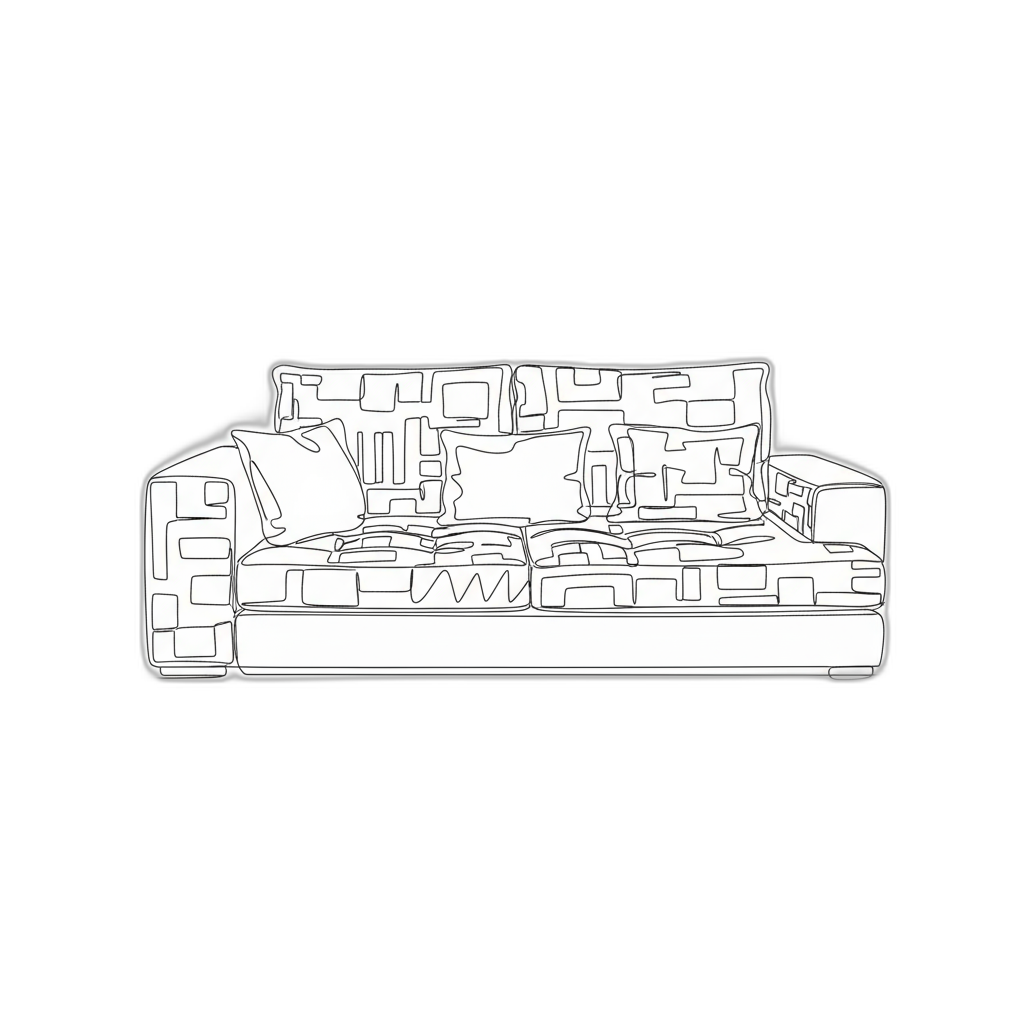






5-Star Service, Trusted & Loved by Hundreds
Your Appraiser Search Ends Here
Your Appraiser Search Ends Here
.avif)

Nationwide Coverage – Appraisals Anywhere in the US

Get it done Onsite or Online

Any Asset, Covered

Defensible for Any Purpose
Frequently Asked
Questions
No Frequently Asked Questions Found.
At its core, a tax deduction represents an expense that can be subtracted from total income before calculating the final tax owed. These deductions come in various forms, each with specific qualifying criteria and implications for taxpayers. Key categories include personal expenses like mortgage interest and medical costs, business operational expenses, itemized deductions, and charitable contributions.
Personal deductions cover a wide range of expenses, from housing-related costs to healthcare expenditures. Business owners can offset their taxable income by deducting ordinary and necessary operational expenses such as rent, utilities, and supplies. Taxpayers also have the option to choose between taking a standard deduction or itemizing their expenses, depending on which approach provides the most financial benefit.
Charitable contributions offer another valuable avenue for tax deductions. Donations to qualified organizations not only support meaningful causes but also provide potential tax advantages. However, it's important to understand that deductions reduce taxable income, not the tax bill directly. For instance, a deduction in the 22% tax bracket would lower tax obligations by 22 cents for every dollar deducted.
Navigating tax deductions requires careful attention to evolving tax laws, eligibility requirements, and specific limitations. Tax regulations frequently change, making it essential for taxpayers to stay informed about current guidelines and potential opportunities for tax optimization.
Understanding and strategically applying tax deductions can significantly impact an individual's or business's financial health. While the process can be complex, these deductions represent a legitimate and valuable tool for managing tax responsibilities and potentially reducing overall tax burden.
A comprehensive appraisal provides more than just a number—it offers a detailed, defensible valuation that can withstand potential IRS scrutiny. Qualified appraisers conduct thorough assessments that consider market trends, asset condition, comparable sales, and specific nuanced factors unique to the item being valued.
For charitable donations, the IRS mandates precise documentation of non-cash contributions. A professional appraisal ensures that the claimed deduction reflects the true fair market value, potentially maximizing tax benefits while maintaining legal integrity. This becomes especially crucial for significant assets like real estate, artwork, collectibles, or business-related properties.
Beyond immediate tax advantages, a well-prepared appraisal provides critical protection during potential audits. The documented evaluation serves as authoritative evidence, offering clarity and substantiation for declared asset values. This can prevent costly disputes and provide peace of mind throughout the tax filing process.
Complex financial scenarios—including estate planning, business transactions, and significant asset transfers—particularly benefit from expert appraisal services. These evaluations offer a comprehensive understanding of asset values, ensuring accurate reporting and strategic financial planning.
Ultimately, a professional appraisal represents an investment in financial accuracy and compliance. By leveraging expert valuation services, taxpayers can confidently navigate the intricate landscape of tax deductions while protecting their financial interests.
Professional appraisers conduct an in-depth examination considering key factors such as age, condition, craftsmanship, materials, and historical significance. They carefully assess the furniture's physical characteristics, including the quality of construction, original materials, and overall preservation state. Specific design elements like wood type, joinery techniques, surface finishes, and manufacturing methods play crucial roles in determining value.
The appraisal process extends beyond visual inspection, incorporating extensive research into comparable market sales, auction records, and current collector trends. Appraisers analyze historical context, examining how specific design periods, manufacturers, and artistic movements impact a piece's desirability and potential financial value. Unique provenance, rare design elements, and original condition can dramatically influence an item's overall appraisal.
Expertise in furniture history, materials science, and market dynamics allows appraisers to provide nuanced, accurate valuations that reflect both the item's intrinsic qualities and its current market positioning. This comprehensive approach ensures a thorough and precise assessment that goes well beyond simple visual estimation.
The online appraisal process is designed to be both flexible and comprehensive. Clients are usually required to provide extensive information about their furniture, including precise dimensions, manufacturing details, current condition, age, and any distinctive characteristics that might influence its value. High-quality, multiple-angle photographs are crucial for enabling appraisers to make accurate assessments.
Advanced technological platforms now support various interactive appraisal methods. Live video consultations through platforms like Zoom or Skype enable real-time communication, allowing appraisers to request additional visual information or ask specific questions about the item. This interactive approach helps bridge the gap between traditional in-person assessments and remote evaluations.
Remote appraisals offer significant advantages, particularly for individuals with scheduling constraints, mobility limitations, or geographical challenges. Clients can undergo professional furniture valuations from the comfort of their home, eliminating the need for complicated logistical arrangements or transportation of potentially fragile items.
While online appraisals provide remarkable convenience, clients should understand that the accuracy of the assessment depends heavily on the quality and comprehensiveness of the information submitted. Clear, well-lit photographs and detailed, honest descriptions are essential for obtaining a reliable valuation.
The digital appraisal landscape continues to evolve, with professionals leveraging sophisticated technologies to deliver precise and trustworthy evaluations. For those seeking a convenient, efficient approach to understanding their furniture's value, online appraisals represent a modern solution to traditional valuation challenges.
Antique furniture appraisers represent a critical subset of this profession, focusing on pieces with significant historical value. They possess deep knowledge of period-specific design elements, manufacturing techniques, and cultural influences. Their expertise allows them to authenticate and precisely value items over a century old, distinguishing genuine antiques from skillful reproductions.
Contemporary furniture appraisers specialize in more recent designs, tracking current market trends and understanding the nuanced value of modern pieces. These professionals are particularly adept at evaluating furniture from the past few decades, considering factors like designer reputation, manufacturing quality, and current aesthetic preferences.
Collectible furniture appraisers occupy a unique niche, concentrating on pieces that hold special significance within collector communities. They understand the complex ecosystem of collector markets, assessing value based on rarity, historical importance, and desirability among specialized enthusiasts.
Specialty furniture appraisers develop deep expertise in specific styles or categories, such as mid-century modern or artisan-crafted pieces. Their targeted knowledge allows for precise valuations that consider the subtle characteristics unique to particular design movements or crafting traditions.
Furniture restoration appraisers bring technical insight into how preservation and restoration impact an item's value. They evaluate the potential and limitations of restoring a piece, providing critical guidance on maintaining or enhancing its market worth through careful intervention.
Selecting the right appraiser requires careful consideration of the specific furniture in question and the purpose of the valuation, ensuring a comprehensive and accurate assessment.
Insurance documentation represents a primary driver for obtaining furniture appraisals. Comprehensive valuations ensure homeowners can secure appropriate coverage and expedite claims processes in the event of loss, theft, or damage. Precise documentation becomes instrumental in protecting significant investments and providing clear evidence of an item's worth to insurance providers.
Estate planning and legal proceedings also benefit substantially from professional furniture appraisals. When distributing assets among heirs, accurate valuations help create equitable divisions and minimize potential familial conflicts. These assessments provide transparent, objective information about furniture's market value, facilitating smoother inheritance transitions and legal settlements.
Charitable donations involving high-value furniture require professional appraisals to validate tax deduction claims. When furniture exceeds certain monetary thresholds, documented assessments become essential for substantiating donation values and maximizing potential tax benefits.
Divorce proceedings frequently rely on furniture appraisals to determine fair property division. Professional evaluations offer neutral, fact-based assessments that help reduce emotional tension and streamline settlement negotiations by providing clear, defensible property values.
Collectors and antique enthusiasts particularly benefit from professional appraisals, gaining insights that inform purchasing, selling, and maintaining valuable collections. Understanding precise market values empowers informed decision-making and prevents potential financial misjudgments.
Ultimately, furniture appraisals represent more than simple monetary assessments. They provide comprehensive insights that protect financial interests, facilitate legal processes, and offer peace of mind across numerous personal and professional contexts.
Why Do Furniture Appraisals Matter for Your Taxes?
Furniture appraisals are a critical component of strategic tax planning and financial management. By understanding the nuanced role these assessments play, individuals can maximize their financial opportunities and ensure regulatory compliance.
Key Benefits of Furniture Appraisals for Tax Purposes
Accurate Fair Market Value Determination
- Establishes precise monetary value for household furniture items
- Prevents potential overestimation or underestimation during tax reporting
- Provides defensible documentation for potential IRS review
Strategic Tax Deduction Opportunities
- Charitable Contributions
- Enables precise deduction calculation for donated furniture
- Validates contribution value for tax filing purposes
- Estate Planning
- Streamlines inheritance tax calculations
- Minimizes potential disputes among estate beneficiaries
Financial Documentation and Protection
- Creates robust evidence for tax claims
- Supports potential audit requirements
- Ensures transparent and accurate financial reporting
Professional furniture appraisals offer more than just monetary valuation—they provide comprehensive financial insights that can significantly impact your tax strategy and overall financial planning.
Navigating the Complexities of Furniture Valuation for Tax Purposes
When it comes to tax deductions, accurately appraising your furniture can save you significant money while ensuring compliance with IRS regulations. The complexities of furniture valuation arise from various factors that contribute to its overall worth, including condition, age, brand reputation, and market demand. Understanding these elements is crucial for both personal and business owners.
Understanding Furniture Valuation
- Condition and Quality: The physical state of the furniture plays a fundamental role in its value. Key considerations include:
- Extent of wear and damage
- Quality of maintenance and restoration
- Overall structural integrity
- Age and Rarity: Antique or vintage pieces may hold a higher value due to their scarcity and historical significance. Important factors include:
- Design period and historical context
- Unique manufacturing techniques
- Limited production runs
- Brand and Provenance: Recognized brands often have a storied reputation that elevates their furniture's appraisal value. Critical documentation includes:
- Original purchase receipts
- Manufacturer warranties
- Previous professional appraisals
- Certificates of authenticity
- Market Trends: Furniture values fluctuate based on current market dynamics. Strategic approaches include:
- Monitoring local and online auction prices
- Analyzing recent sales of similar items
- Tracking collector and design market trends
The Role of Professional Appraisers
While DIY appraisals are possible, enlisting a certified appraiser offers significant advantages. A professional will:
- Provide an objective and comprehensive assessment
- Ensure compliance with IRS guidelines
- Offer expert insight into complex valuation factors
- Deliver a credible report that stands up to tax authority scrutiny
Professional appraisers bring expertise that goes beyond simple price estimation, delivering a thorough evaluation that protects your tax deduction interests.
What Types of Furniture Qualify for Charitable Donation Appraisals?
Types of Furniture Qualifying for Charitable Donation Appraisals
When considering furniture for charitable donation appraisals, understanding which items qualify is essential for maximizing potential tax benefits.
Qualified Furniture Categories
- Standard Household Furniture
Typical home furnishings that qualify include: • Sofas • Chairs • Tables • Dressers • Beds These fundamental pieces are most commonly donated to charitable organizations.
- Vintage and Antique Furniture
High-value items with historical significance can generate substantial tax deductions. Key considerations include: • Rarity of the piece • Overall condition • Historical provenance • Collectible status
- Office and Professional Furniture
Business-related furniture donations can provide significant tax benefits, including: • Executive desks • Conference room furniture • Ergonomic chairs • File cabinets • Reception area furnishings
- Specialty and Custom-Made Furniture
Unique items with distinctive characteristics may qualify, such as: • Handcrafted wooden pieces • Artisan-designed furniture • Custom-built furniture with exceptional craftsmanship
- Outdoor and Patio Furniture
Quality exterior furnishings can also be eligible, including: • Patio sets • Garden chairs • High-end outdoor seating • Durable exterior furniture made from premium materials
Critical Appraisal Considerations
To qualify for charitable donation appraisals, furniture must meet specific criteria:
- Items must be in good, functional condition
- Furniture should be clean and presentable
- Pieces must have recognizable market value
- Donations should be made to qualified charitable organizations
Carefully evaluating your furniture's condition, uniqueness, and potential value can help maximize tax benefits while supporting charitable causes.
Inside the Furniture Appraisal Process: A Step-by-Step Guide
Understanding the Furniture Appraisal Process
Navigating the complexities of furniture appraisal requires a systematic and professional approach, especially when seeking tax deduction benefits. This comprehensive guide breaks down the essential steps to ensure a thorough and accurate valuation.
Key Stages of Furniture Appraisal
- Initial Consultation
The process begins with a detailed information-gathering session between the client and the professional appraiser. During this crucial first step, critical details are collected, including:
- Item age and historical background
- Manufacturer and origin
- Current condition and preservation status
- Unique characteristics or historical significance
- Comprehensive On-Site Inspection
A meticulous physical examination of the furniture follows the initial consultation. This critical phase involves:
- Detailed visual assessment of the item's condition
- High-resolution documentation through professional photography
- Identification of unique features, restoration work, or potential imperfections
- Careful examination of materials, craftsmanship, and structural integrity
- Extensive Research and Valuation
The appraiser conducts in-depth research to determine an accurate fair market value, which includes:
- Comparative analysis of similar pieces
- Consultation of auction records and sales databases
- Evaluation of current market trends and collector interest
- Assessment of historical significance and rarity
- Detailed Report Preparation
A comprehensive appraisal report is meticulously compiled, encompassing:
- Precise valuation of the furniture item
- Detailed methodology and research process
- Supporting documentation and evidence
- Clear explanation of value determination
- Final Review and Client Consultation
The final stage involves a thorough review of the appraisal report, ensuring:
- Complete transparency of the valuation process
- Opportunity for client questions and clarifications
- Comprehensive understanding of the appraisal findings
- Preparation for potential tax documentation
Professional furniture appraisal is a precise and methodical process that requires expertise, attention to detail, and comprehensive market knowledge. By following these structured steps, individuals can obtain an accurate and defensible valuation for tax deduction purposes.
Avoiding Costly Mistakes in Furniture Tax Deduction Appraisals
Navigating furniture tax deductions requires precision and strategic planning. Mistakes can lead to significant financial consequences, including potential IRS scrutiny and reduced tax benefits.
Understanding IRS Guidelines for Furniture Deductions
- Deductions apply only to furniture directly related to business or investment activities
- Each piece must demonstrate a clear purpose in generating income
- Comprehensive documentation is essential to substantiate claims
Selecting the Right Appraiser
Key Qualifications to Consider
- Professional credentials in furniture appraisal
- Deep understanding of current market trends
- Ability to provide impartial, detailed valuation reports
- Experience with tax-related appraisal documentation
Critical Documentation Strategies
Maintain a comprehensive record of your furniture assets, including:
- Original purchase receipts
- Detailed sales contracts
- High-quality photographs documenting condition
- Professional appraisal reports
Timing and Market Considerations
Be aware that furniture values can fluctuate based on:
- Seasonal market changes
- Recent acquisition dates
- Current economic conditions
- Specific industry trends
Consulting with a qualified appraiser can help you navigate these complexities and maximize your potential tax deductions while maintaining full compliance with IRS regulations.
How to Choose a Reliable and Certified Furniture Appraiser
Key Considerations When Selecting a Furniture Appraiser
Obtaining an accurate furniture appraisal for tax deduction purposes requires careful selection of a qualified professional. The right appraiser can ensure fair valuation that meets tax regulations and accurately reflects your furniture's true market value.
Essential Qualifications to Evaluate
- Professional Credentials
- Seek certifications from reputable organizations like American Society of Appraisers (ASA)
- Verify professional accreditations that demonstrate rigorous training
- Confirm adherence to established ethical standards
- Specialized Expertise
- Choose appraisers with specific experience in your furniture's category
- Look for specialists in antique, contemporary, or custom furniture
- Prioritize professionals understanding unique value determinants
Evaluating Appraiser Professionalism
- Comprehensive Reporting
A reliable appraiser should provide:
- Detailed valuation documentation
- Clear methodological explanations
- Substantive comparable sales research
- Transparent reasoning behind assessed value
- Professional Communication
Assess the appraiser's ability to:
- Explain complex valuation processes clearly
- Answer questions thoroughly
- Provide guidance throughout the appraisal process
- Client Validation
Research appraiser reputation through:
- Client testimonials
- Professional references
- Online reviews
Thoroughly vetting potential appraisers ensures accurate documentation that can maximize your potential tax deduction while maintaining professional integrity.
Essential Documentation for Substantiating Your Furniture Donation
When donating furniture for tax deduction purposes, having the right documentation is crucial to substantiating the value of your gift to the IRS. Inadequate or improper documentation can result in missed tax deductions, making thorough record-keeping essential.
Key Documentation for Furniture Donations
1. Comprehensive Donation Receipt
- Obtain an official receipt from the charitable organization
- Ensure the receipt includes:
- Name of the charitable organization
- Date of donation
- Detailed description of donated furniture items
- Serves as primary evidence for IRS verification
2. Detailed Itemized Inventory
- Create a comprehensive list of donated furniture
- Include specific details for each item:
- Furniture type (sofa, dining table, chairs)
- Condition (new, gently used, fair condition)
- Estimated individual value
- Reinforces the claimed value on tax return
3. Professional Appraisal for Significant Donations
- Required for donations exceeding $500
- Benefits of a professional appraisal:
- Provides market-standard valuation
- Strengthens tax deduction claim
- Ensures compliance with IRS regulations
4. Photographic Documentation
- Take clear, comprehensive photographs of donated items
- Capture multiple angles
- Highlight item condition and unique characteristics
- Serves as visual evidence of donation
5. IRS Form 8283 Submission
- Mandatory for charitable contributions over $500
- Complete:
- Section A for most donations
- Section B for items requiring professional appraisal
- Provides official record of charitable contribution
Meticulous documentation not only protects your potential tax deduction but also demonstrates your commitment to charitable giving, ensuring your contributions are properly recognized and valued.
Decoding the Math: How Furniture Appraisals Impact Your Tax Deduction
Navigating the landscape of tax deductions for furniture requires a strategic understanding of the appraisal process. When donating or selling furniture, a professional appraisal becomes crucial in accurately determining fair market value and supporting potential tax benefits.
Key Factors in Furniture Valuation
A comprehensive furniture appraisal evaluates multiple critical elements:
- Physical Condition Assessment: Appraisers meticulously examine the furniture's overall condition, analyzing wear, damage, and preservation status
- Market Demand Evaluation: Current market trends significantly influence furniture valuation, with collector interest and design preferences impacting potential value
- Comparative Market Analysis: Experienced appraisers benchmark your furniture against recent sales of similar pieces to establish an accurate, defensible valuation
IRS Documentation Requirements
The Internal Revenue Service mandates specific guidelines for non-cash charitable contributions:
- Formal appraisals are required for donations exceeding $5,000
- Comprehensive documentation must include detailed valuation reports
- Photographic evidence and donation/sale records should be meticulously maintained
Strategic Tax Preparation Insights
A professional appraisal serves multiple strategic purposes:
- Provides robust documentation for potential tax audits
- Ensures accurate representation of furniture's true market value
- Supports legitimate tax deduction claims with professional substantiation
By understanding these critical valuation principles, individuals can confidently navigate furniture-related tax deductions while maintaining compliance with IRS regulations.
Frequently Asked Questions: Furniture Donations and Tax Implications
Understanding Furniture Donation Tax Implications
Navigating the tax landscape of furniture donations requires careful attention to detail and understanding of IRS guidelines. This comprehensive overview will help you maximize potential tax benefits while ensuring compliance.
Qualifying for Tax Deductions
To be eligible for a tax deduction, your furniture donation must meet specific criteria:
- Donated to a qualified 501(c)(3) charitable organization
- Item must be in good condition or better
- Cannot be considered unsalable by IRS standards
Determining Donation Value
Accurate valuation is crucial for tax purposes. Consider these methods:
- Assess fair market value based on current condition
- Use online valuation tools for guidance
- Consult professional appraisers for higher-value items
- Document condition through detailed photographs
Deduction Limits and Documentation
Important considerations for tax reporting:
- Deduction limits vary by charity type:
- Public charities: Up to 60% of adjusted gross income
- Private foundations: Up to 30% of adjusted gross income
- Documentation requirements:
- Obtain receipt from charitable organization
- For donations over $500, complete IRS Form 8283
- Maintain detailed records of donated items
Best Practices for Furniture Donations
- Photograph items before donation
- Create a detailed inventory list
- Get written acknowledgment from the charity
- Consult a tax professional for personalized advice
By understanding these guidelines, you can confidently navigate furniture donations while potentially benefiting from valuable tax deductions.
Success Stories: Real Clients' Furniture Donation Strategies
When it comes to maximizing tax deductions through furniture donations, real clients have discovered strategic approaches that benefit both their financial wellness and charitable causes. These success stories illustrate how thoughtful donation can create meaningful impact.
Strategic Donation Approaches
Home Decluttering Strategy
- Client identified gently used furniture no longer needed
- Coordinated with local charity for item pickup
- Carefully documented furniture condition and estimated retail value
- Result: Cleared home space and secured significant tax deduction
Business Renovation Donation
- Business owner renovating office space
- Chose to donate functional office furniture instead of discarding
- Connected with nonprofit supporting job training programs
- Achieved dual benefits: Tax deduction and community support
Cross-Country Move Donation Plan
- Family downsizing during relocation
- Hosted yard sale for lower-value items
- Donated high-quality furniture to maximize impact
- Obtained professional appraiser verification for tax claim legitimacy
These real-world examples demonstrate that strategic furniture donation can simultaneously achieve financial optimization and meaningful charitable contribution. By implementing careful planning and documentation, individuals can transform unused furniture into valuable community resources while securing potential tax benefits.
Preserving Value: Long-Term Strategies for Your Furniture Assets
Preserving Your Furniture's Value: Strategic Long-Term Asset Management
Furniture represents more than just functional decor—it's a potential financial asset that requires thoughtful preservation. Implementing strategic care practices can help maintain and potentially enhance your furniture's value over time.
Comprehensive Maintenance Protocols
- Precision Cleaning Techniques
- Select material-specific cleaning methods
- Use soft cloths and appropriate polishes
- Follow manufacturer's recommended care guidelines
- Proactive Repair Strategies
- Address minor damages immediately
- Prevent small issues from escalating
- Consult professional restoration experts when needed
Environmental Preservation Considerations
- Strategic Furniture Placement
- Minimize direct sunlight exposure
- Protect against UV damage and color fading
- Preserve material structural integrity
- Climate Control Management
- Maintain consistent temperature (60-75°F)
- Control humidity levels (40-60%)
- Prevent wood warping and fabric deterioration
Documentation and Valuation Practices
- Comprehensive Record Keeping
- Maintain detailed inventory documentation
- Preserve purchase receipts
- Catalog high-quality photographs
- Retain professional appraisal records
- Professional Valuation Insights
- Schedule periodic professional appraisals
- Track asset value fluctuations
- Understand potential appreciation trends
By integrating these strategic approaches, you can transform furniture from mere household items into carefully maintained financial assets, potentially maximizing their long-term value and utility.
Maximizing Tax Benefits Through Strategic Furniture Appraisals
Furniture can be a significant asset in both personal and professional settings, and understanding its value is crucial when pursuing tax deductions. Strategic furniture appraisals offer a powerful method to maximize potential tax benefits across various scenarios, including charitable donations, business expenses, and estate planning.
Why Professional Appraisals Matter for Tax Purposes
A credible furniture appraisal is essential for successfully claiming tax deductions. The key is to work with a qualified professional who:
- Adheres to strict industry standards
- Provides a comprehensive assessment of fair market value
- Generates documentation that will withstand IRS scrutiny
Critical Considerations for Furniture Appraisals
1. Comprehensive Documentation
Successful tax deductions rely on thorough documentation, including:
- Original purchase receipts
- High-quality photographs
- Detailed item descriptions
- Provenance or historical information
2. Assessing Value Factors
Multiple elements influence a furniture item's potential tax deduction value:
- Condition: Current state of preservation
- Age: Historical significance and rarity
- Original Craftsmanship: Maker's reputation and quality
- Market Trends: Current collector and resale values
3. Specific Donation Considerations
When donating furniture for tax purposes, keep these guidelines in mind:
- Obtain a qualified appraisal from a certified professional
- Ensure the donation meets IRS charitable contribution requirements
- Maintain accurate and detailed records of the donation
- Get a written acknowledgment from the receiving charitable organization
Maximizing Your Tax Strategy
A strategic approach to furniture appraisals can transform these items from simple household objects into valuable financial assets. By understanding market dynamics, maintaining comprehensive documentation, and working with qualified professionals, you can potentially unlock significant tax benefits.
Remember that tax laws are complex and constantly evolving. Always consult with a qualified tax professional who can provide personalized guidance tailored to your specific financial situation.
View all Locations
BEST-IN-CLASS APPRAISERS, CREDENTIALED BY:





















.svg)










